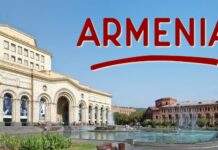Constitutional Law Syllabus Contents Are; Definition and Scope of Constitutional Law, Principles of Constitutional Law,
Constitutional Law Syllabus TABLE OF CONTENTS
(ACCORDING TO FPSC)
I. Definition and Scope of Constitutional Law, Basic Constitutional Concepts
(Constitutional Conventions, Rule of Law, Due Process), Constitutional Structures
(Parliamentary, Presidential, Separation of Powers), Judiciary (Independence of
Judiciary, Judicial Review, Theories of Constitutional Interpretation) Fundamental
Human and Political Rights and Civil Liberties (freedom of speech, association,
assembly, movement, and Right to Counsel, life, property, religion, privacy, self
incrimination, double jeopardy).
II. Principles of Constitutional Law with special reference to the United Kingdom, United
States of America, France, Russia, China, Pakistan, India, and Turkey.
III. Constitutional History of Pakistan: Principles of Constitutional Law of Pakistan,
The salient feature of the Government of India Act, 1935, Indian Independence Act 1947,
Objectives Resolution 1949, Constitutions of 1956, 1962 and 1973, Abrogation and
Suspension of the Constitutions and the Martial Laws, Legal Framework Order,
1970, The PCO of 1981, The RCO of 1985, The LFO-2002, Amendments in 1973
Constitution.
IV. Legal Development:
Maulvi Tamizuddin Khan v. Federation of Pakistan PLD 1955 Sindh 96.
Federation of Pakistan vs. Maulvi Tamizuddin Khan, PLD 1955 FC 240
Reference by the Governor-General PLD 1955 FC 435
State v. Dosso PLD 1958 SC 533.
Asif Patel v. Crown PLD 1955 FC 387
Begum Nusrat Bhutto v. Chief of the Army Staff PLD 1977 SC 657
Hakim Khan v. Government of Pakistan PLD 1992 SC 595
Nawaz Sharif v. President of Pakistan PLD 1993 SC 473
Benazir Bhutto v. the President of Pakistan PLD 1992 SC 492
Khawaja Muhammad Sharif, PLD 1988 Lah. 725
Federation of Pakistan v. Haji Saifullah Khan PLD 1989 SC 166
Khawaja Ahmad Tariq Rahim PLD 1992 SC 646
Benazir Bhutto v. President of Pakistan, PLD 1998 SC 388
Asma Jilani v. Government of the Punjab PLD 1972 SC 139
State v. Zia ur Rehman PLD 1973 SC 49
Mahmood Khan Achakzai v. Fed. of Pakistan PLD 1997 SC 426
Zafar Ali Shah v. General Pervez Musharraf, PLD 2000 SC 869.
Sindh High Court Association v. Federation of Pakistan, PLD 2009 SC 879.
SUGGESTED BOOKS FOR THIS SUBJECT
| S.No. | Title | Author |
| 1. | Comparative Constitutional Law | Hamid Khan & M.W. Rana |
| 2. | Constitution of Pakistan 1973 | Shabbar Raza Rizvi |
| 3. | Introduction to the Study of the Law of the Constitution | Dicey |
| 4. | Elgar Encyclopedia of Comparative Law | J.M. Smits |
| 5. | Constitutional & Political History of Pakistan | Hamid Khan, Advocate |
| 6. | Human Rights in Constitutional Law | SR. Bansali |
| 7. | Constitutional Documents of Pakistan | Safdar Mahmood |
| 8. | The Leading Cases in Constitutional Law | A.G.Chaudhry |



























